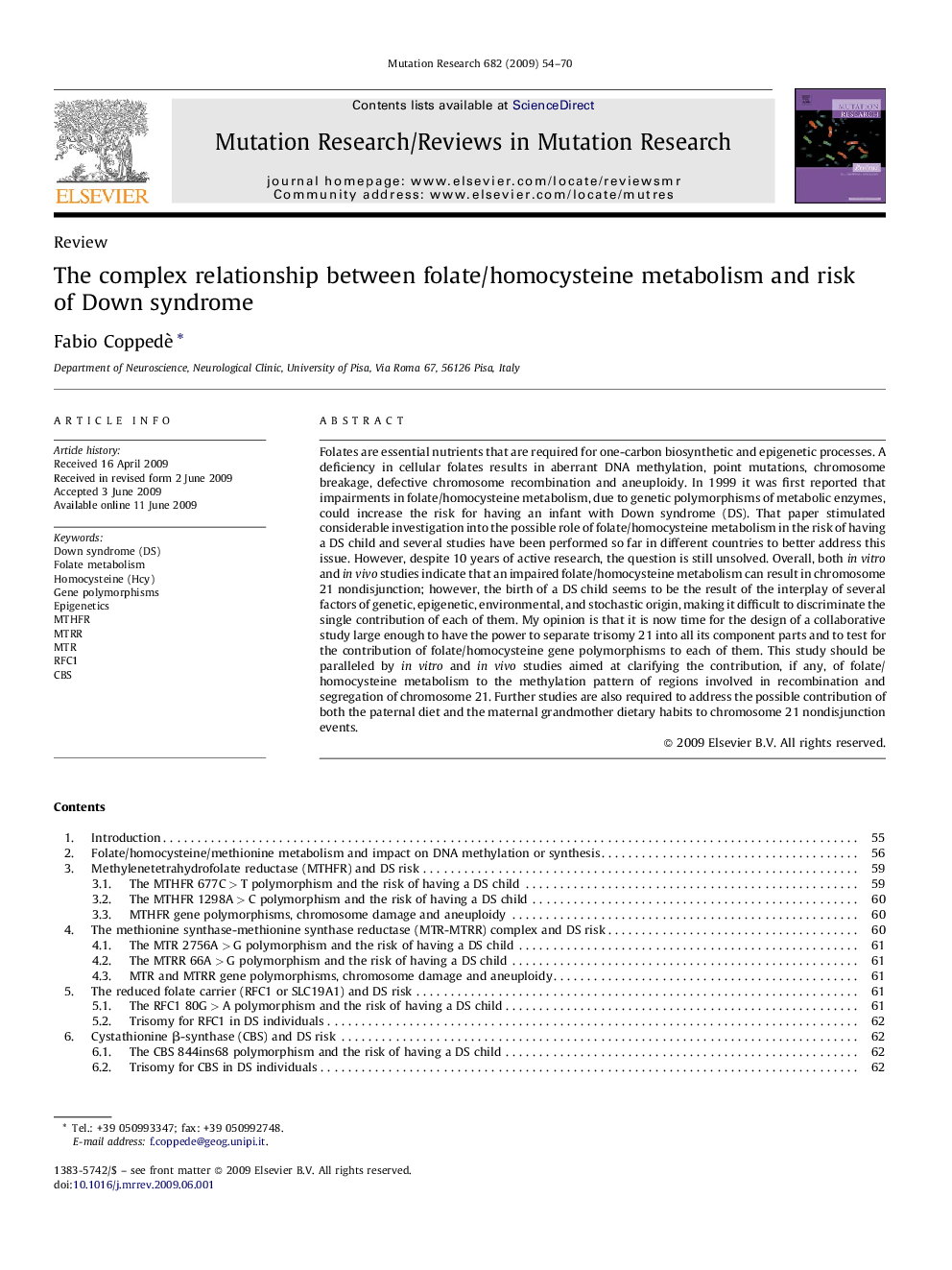| کد مقاله | کد نشریه | سال انتشار | مقاله انگلیسی | نسخه تمام متن |
|---|---|---|---|---|
| 2149727 | 1089878 | 2009 | 17 صفحه PDF | دانلود رایگان |

Folates are essential nutrients that are required for one-carbon biosynthetic and epigenetic processes. A deficiency in cellular folates results in aberrant DNA methylation, point mutations, chromosome breakage, defective chromosome recombination and aneuploidy. In 1999 it was first reported that impairments in folate/homocysteine metabolism, due to genetic polymorphisms of metabolic enzymes, could increase the risk for having an infant with Down syndrome (DS). That paper stimulated considerable investigation into the possible role of folate/homocysteine metabolism in the risk of having a DS child and several studies have been performed so far in different countries to better address this issue. However, despite 10 years of active research, the question is still unsolved. Overall, both in vitro and in vivo studies indicate that an impaired folate/homocysteine metabolism can result in chromosome 21 nondisjunction; however, the birth of a DS child seems to be the result of the interplay of several factors of genetic, epigenetic, environmental, and stochastic origin, making it difficult to discriminate the single contribution of each of them. My opinion is that it is now time for the design of a collaborative study large enough to have the power to separate trisomy 21 into all its component parts and to test for the contribution of folate/homocysteine gene polymorphisms to each of them. This study should be paralleled by in vitro and in vivo studies aimed at clarifying the contribution, if any, of folate/homocysteine metabolism to the methylation pattern of regions involved in recombination and segregation of chromosome 21. Further studies are also required to address the possible contribution of both the paternal diet and the maternal grandmother dietary habits to chromosome 21 nondisjunction events.
Journal: Mutation Research/Reviews in Mutation Research - Volume 682, Issue 1, July–August 2009, Pages 54–70